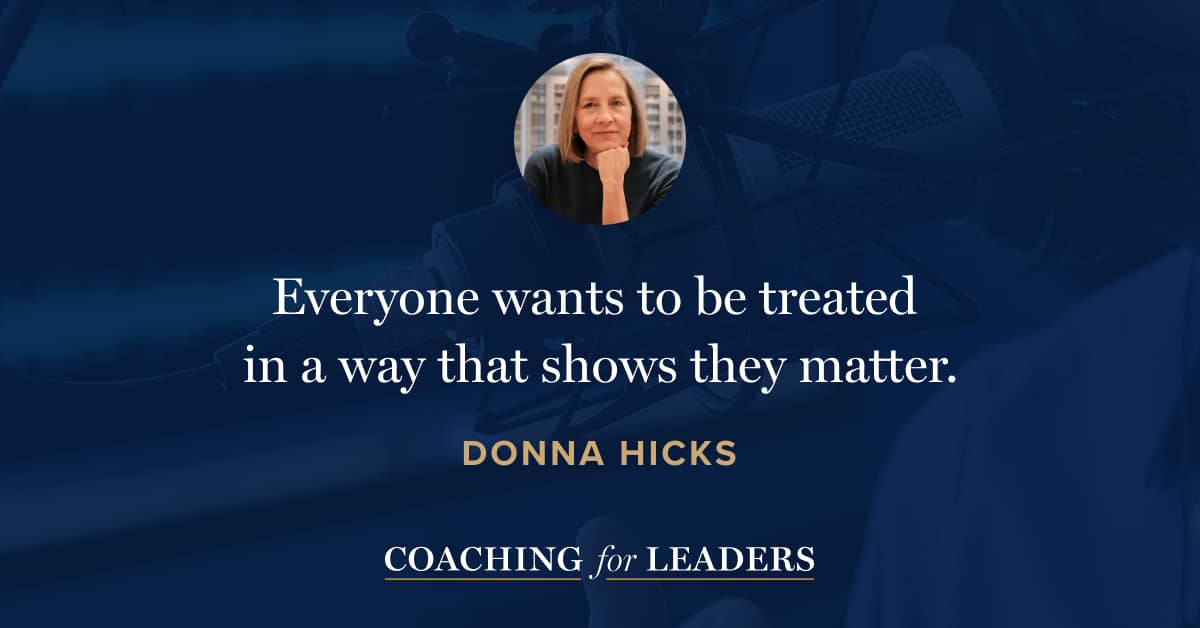Donna Hicks: Leading with Dignity
Donna Hicks is an Associate at the Weatherhead Center for International Affairs at Harvard University and the former Deputy Director of the Program on International Conflict Analysis and Resolution (PICAR). She has facilitated dialogues in numerous unofficial diplomatic efforts and was a consultant to the BBC in Northern Ireland, where she co-facilitated a television series, Facing the Truth, with Archbishop Desmond Tutu. She is the author of Dignity: Its Essential Role in Resolving Conflict and Leading with Dignity: How to Create a Culture That Brings Out the Best in People*.
Everyone wants to be treated in a way that shows they matter. We may differ in status, but we are all equal in dignity. In this episode, Donna and I explore how appreciating dignity can help us bring out the best in people.
Key Points
- Everyone wants to be treated in a way that shows they matter.
- Dignity is different from respect. Everyone has dignity, but not everyone deserves respect.
- A major misconception of dignity is that we receive our worth from external sources.
- We’re at our best when connected to our own dignity, connected to the dignity of others, and connected to the dignity of something bigger.
- Start with vulnerability and empathy. These open the doors to connecting with your own dignity and the dignity of others.
- We may differ in status, but we are all equal in dignity.
Resources Mentioned
- Dignity: It’s Essential Role in Resolving Conflict* by Donna Hicks
- Leading with Dignity: How to Create a Culture That Brings Out the Best in People* by Donna Hicks
Interview Notes
Download my interview notes in PDF format (free membership required).
Related Episodes
- How to Get Way Better at Accepting Feedback, with Sheila Heen (episode 143)
- Use Power for Good and Not Evil, with Dacher Keltner (episode 254)
- Help People Show Up as Themselves, with Frederic Laloux (episode 580)
Discover More
Activate your free membership for full access to the entire library of interviews since 2011, searchable by topic. To accelerate your learning, uncover more inside Coaching for Leaders Plus.





